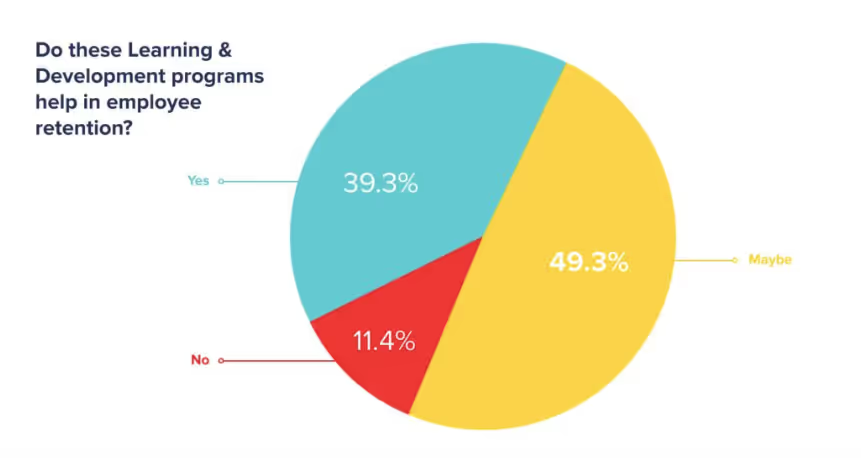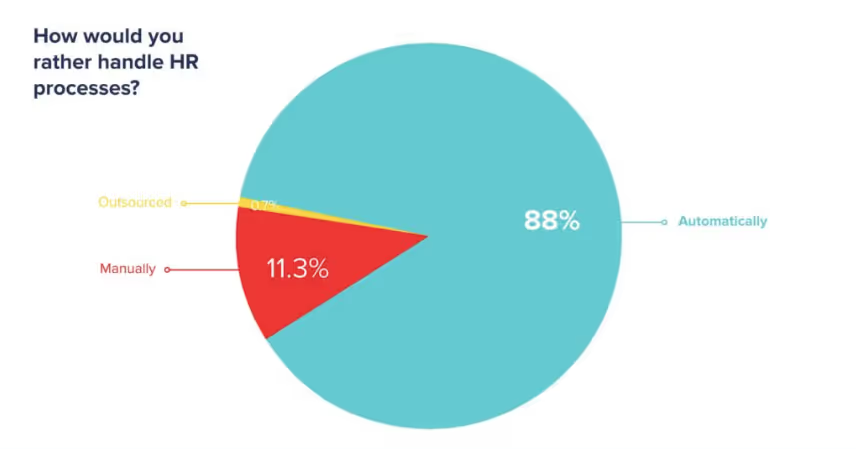HR has been in a revolutionary state for over two years now. We hoped to leave the pandemic behind in 2020, but it was only getting started and had so much in store for us. We have gone through remote work, hybrid work, back to work, and leaders & HR professionals have had to manage entire workforces during these tumultuous times.
The case of the HR trends in the Philippines in 2025 is interesting. To mitigate the impact of the COVID-19 outbreak on businesses, workers, customers, and other stakeholders in the Philippines, HR leaders and business owners have made tremendous efforts. Several companies have updated their risk management plans to address the specific exposure, as well as identified sources of exposure and modes of transmission. Employers have taken careful steps to identify workplace risk levels and the control measures that must be implemented.
No matter how big or small the organization, HR in the Philippines has acted in the true spirit of Malasakit (care and concern for the other) and Bayanihan (a fundamental aspect of Filipino culture with an aim to work together to achieve a common goal) in this time of crisis.
The end product is elaborated beautifully in the top kahanga-hanga HR trends in the Philippines.
Top 11 kahanga-hanga HR trends in the Philippines in 2025
1. Putting an emphasis on digital literacy
In today's digital world, your team must be able to adapt and survive. Surprisingly, there is still a gap between business needs and levels of digital competency. According to a 2018 survey, only 16% of business leaders and 9% of employees consider themselves digitally proficient. However, as a digital HR trend in 2025, the Philippines can anticipate learning and development strategies that provide employees with essential digital skills.
2. Increased emphasis on a data-driven mindset
Data plays huge role in helping HR obtain real-time and accurate data. But the common practice among HR teams was to gather data in spreadsheets, thus increasing the paperwork. However, with the rise and adoption of technology, people analytics has helped organizations gather and analyze people-data to make faster and better decisions. And currently, 58% of companies in Philippines have data analytics teams.
However, many companies, especially on the smaller scale, fall short in embracing effective and data-driven people analytics. One of the major HR trends in the Philippines in 2025 witnesses a marked shift towards the adoption of HR analytics for better decision-making.
3. Expansion of contingent employment
In the Philippines, the economic uncertainty caused by the Covid-19 pandemic has caused companies to close and workers to lose their jobs. The gig economy grew, while contract work declined. Organizations will continue and expand their use of contingent workers in the face of an uncertain future.
The gig economy grew in size in 2020, and this trend is expected to continue in 2025 and beyond. Human Resources will need to review company policies on hiring and compensating contingent and gig workers. Therefore, it is time for the Philippines to reconsider the laws or government policies that limit flexible work arrangements.
4. Adopting Design Thinking in order to put people first
When Covid-19 hit, all HR models, templates, and plans had to be thrown out the window because they no longer made sense in light of the current situation. To create new agile and effective structures and operating models, HR in the Philippines had to go back to the drawing board and start building processes with the employee at the centre of the experience in this delivery model.
Design thinking emerged as a method of solving creative problems. HR is no longer settling for pre-packaged solutions. In 2025, more organisations will choose HR technology based on the resolution of their use cases rather than a long list of features.
Also Read: HR challenges in Philippines: the Role of HR vs a Roll of Lumpia
5. Using talent mobility to retain employees
With the Great Resignation at play, 87% of HR professionals see employee retention as the top priority for the next five years. With turnover costs being as burdensome as they are, retention efforts are in full swing.
Therefore, as the war for talent continues to wage on in 2025, one of the HR trends in the Philippines that we are seeing today is more and more companies embracing Talent Marketplaces. A talent marketplace is a platform that allows managers from across the organisation to post opportunities for open positions, temporary assignments, short- and long-term or part-time projects, mentorships, and any other initiative that requires talent from within the organisation.
Leveraging the power of the talent marketplace facilitates a relevant match between available job opportunities and employees who may have the right skill.

6. Increased investment in employee upskilling
A recent global survey of HR leaders highlights the need for additional skills in 2025. When asked how they feel about upskilling and retraining, 77% of Filipino workers say they are enthusiastic about the idea.
Employees leave for a variety of reasons, the most common of which is a lack of a clear career path within an organisation, with 70% leaving for a company that provides better development and training. If they believe they are not receiving the necessary training and development to advance their position in the company, they will most likely look elsewhere. Upskilling comes into play here.
Upskilling allows employees to gain more job-relevant skills while also allowing companies to develop in-house talent, resulting in a more agile and flexible workforce. The advantages of upskilling are twofold. The first consideration is employee productivity. The second is a positive employee experience, which helps with retention goals.
7. The Metaverse as the ultimate learning opportunity
In this exciting HR trend in Philippines, many organisations are already looking to the Metaverse to help them create a learning ecosystem that combines innovation, data-centricity, ecosystem thinking, a growth mindset, and employee engagement. This is more than just gamification; it's an integration of an alternate reality to ours that brings cross-functional, inter-departmental teams together in the creation of an ecosystem for capability building.
Learning technology will play a role in engaging employees and ecosystem stakeholders in a persistent, digital world that is linked to many aspects of the physical world.
8. Increased use of remote and hybrid working environments
Now that the Philippines are likely at the tail-end of a global health catastrophe thanks to the aggressive inoculation efforts, more and more employees employees are showing up in office again. That is not to say that remote work will go out of style. What is most likely to occur is the introduction of hybrid work.
According to a Gartner poll, 48% of employees will likely work remotely after the pandemic. As a result, human resources must identify and develop the critical competencies for people to collaborate digitally. Allowing employees to navigate between the office and remote setups using their own discretion is an even better approach.
9. Emphasis on employee well-being and mental health
Burnout affects approximately 76% of employees. Employee turnover is also influenced by burnout. The current environment has altered what motivates employees to work and what they value most about their jobs. As a result, overall productivity and engagement will place a greater emphasis on well-being.
HR trends in the Philippines in 2025 show that employers are expected to provide long-term inclusive benefits that prioritise flexibility, holistic well-being, and mental health support. According to data, 85% of businesses in the Philippines are focusing on offering well-being programmes to attract talent.

10. Getting rid of outdated evaluation mechanisms
According to recent research, organisations are moving toward objective frameworks for performance management in order to identify and effectively engage their high performers. This change is being led by the IT and Internet sectors, and other industries will soon follow suit.
In addition, organisations in the Philippines are breaking down silos in traditional talent management by connecting data from different modules. Performance management is now linked to Individual Development Plans in more than 40% of companies.
11. Innovation through HR automation
Some good news in the HR trends in the Philippines is that businesses have begun to automate their manual processes. In 2020, 45 percent of global HR leaders said they would implement automation within the next 12 to 24 months. If this data teaches us anything, it is that HR departments in the Philippines will be more likely to use automated tools in the coming year.
Cloud technology provides numerous benefits to human resource management. For starters, it has enabled remote hiring. Training can now be completed in the cloud as well. Furthermore, tracking and updating employee information and credentials can now be done digitally rather than on paper. Cloud technology has proven to be such a boon to businesses that, according to a survey, 57% of organisations will use HR Software-as-a-Service (SaaS) in 2025.
Final Words
The HR trends in the Philippines in 2025 point towards one thing, and that is that businesses and HR professionals are stating to see the benefits of process automation. They are optimistic that moving forward, using tech and AI-driven HR software will automate the grunt work.
As the world moves more and more to the HR cloud, smart device applications are becoming more important to support the capabilities. The finest HR software in the Philippines should enable workplaces to access all information on the go, in line with cloud-based options. If your HR department isn't already using cloud-based solutions, now is the time to make the switch.
Take your insights from these HR trends in the Philippines and come to peopleHum to see how our software can assist in advancing your HR agenda.































%20Large.avif)


















